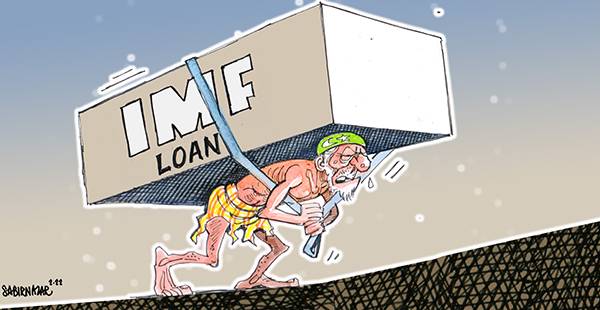
The new Chief Justice of Pakistan, Umar Ata Bandial, has provoked comment in his first public address before the bar and bench. He believes the media has a fair right to criticise judicial decisions but must be restrained by the government of the day from defaming and scandalizing judges. He is particularly irked by the free-wheeling and sometimes personal remarks about the judiciary in general and some judges in particular on social media platforms. But the good judge might pause to consider some points before jumping the gun.
Pakistan’s judiciary is not exactly a paragon of virtue and justice. A recent global poll has kicked Pakistan’s judiciary down to 145th position in the international index of corruption and inefficiency. Indeed, its historical reputation as a “handmaiden of the executive” is fairly deserved in the pecking order of the civil-military establishment. Lay folks commonly say they are inclined to rent a judge rather than hire a lawyer to plead their case in the lower courts. Meanwhile, “superior” judges have justified all martial laws in the country under the dubious “doctrine of necessity” and tripped over themselves to serve the Establishment when it conspired to kick out elected prime ministers on the basis of trumped-up allegations of corruption or misdemeanor. They have thought nothing of unduly grabbing perks and plots. On the one occasion when a maverick chief justice, Iftikhar Chaudhry, triggered a mass democratic protest movement against a dictator, the “revolutionary awakening”
Chief justice Bandial’s exhortation to the executive to protect the court’s integrity from the media’s slings and arrows is a classic case of misplaced concreteness for two main reasons. Forgive the cliché, but judges are expected to speak and defend themselves through the integrity and strength of their judgments rather than executive fiat. In modern times, too, they are expected to protect the have-nots who are most in need of swift relief and justice rather than the grubby elites who make and break laws. More to the point, if the judiciary fancies itself as an independent pillar of the state, it must accord the same status to the media in the constitutional order of things. In this scheme, asking the executive to sort out the media is unacceptable. A recent report by the Council of Pakistan Newspaper Editors on the threatened state of the Pakistani media is worth summarizing in order to disabuse such notions.
In 2021, five journalists were killed in the line of duty, two committed suicide because they couldn’t feed their families, seven were wounded in targeted attacks, four were seriously injured, 28 were assaulted, four were “disappeared”, many were harassed online to stress-point by regime trolls, ten were slapped with FIRs and dragged to police stations. Media houses and TV channels were subjected to arbitrary closures, PEMRA notices, stiff fines and blatant censorships. Sever
Justice Bandial arrives at the apex of the apex court in troubled times. Until now, the judiciary has been overly protective and supportive of Imran Khan, partly because of the perception of Sharif-Bhutto family corruption, partly because of PPP and PMLN musical-chairs fatigue, a
The big break occurred in the Supreme Court when the Supreme Judicial Council judgment against Justice Qazi Faiz Isa was overturned recently. Justice Bandial was among the judges who ruled against Justice Isa on both occasions. The naysayers are convinced that the Miltablishment hasn’t given up trying to oust Justice Isa from the SC. So all eyes will now be on Justice Bandial. The Peshawar High Court has also woken up after nearly two years to revive the corruption cases relating to the PTI government’s Malam Jabba and Billion Tree Projects, Khybar Bank, BRT, etc. The Islamabad High Court has ordered the Chairman NAB to answer contempt charges. The Election Commission of Pakistan is slowly releasing damning documents in the PTI Foreign Funding Case that could make for disqualifying Imran Khan; the LHC and SC have suspended major development in the Ravi River project so dear to Imran Khan’s heart. Some disqualifications of PTI stalwarts by the ECP are on the cards. These developments are a far cry from the Hanif Abbasi petition against Imran Khan’s disqualification in 2018 on the yardstick of “sadiq and ameen” that was turned down by the Islamabad High Court because having a child out of wedlock and not acknowledging her was deemed a “personal matter” not subject to law, never mind that a law was clearly broken in the bargain!
The current crisis of the state is not limited to the credibility of political parties or sustainability of the hybrid political system. It has also delegitimized the national security policies of the Miltablishment. The Supreme Court cannot remain oblivious of the popular will and swim against the current. Under the circumstances, Chief Justice Umar Ata Bandial’s stint is likely to assume historic proportions, for better or worse.

